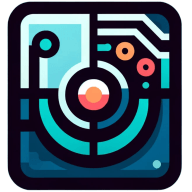3 Tips for Contributing to Open-Source Projects in Unfamiliar Programming Languages
Open-source projects offer a unique opportunity to expand programming skills beyond familiar languages. This article presents expert-backed tips for contributing to open-source projects in unfamiliar programming languages. From navigating new territory through collaboration to embracing community-driven learning, these insights will help developers tackle projects in languages like Rust with a systematic approach.
- Navigate Unfamiliar Open-Source Territory with Collaboration
- Embrace Community-Driven Learning in Open-Source Projects
- Tackle Rust Project Through Systematic Approach
Navigate Unfamiliar Open-Source Territory with Collaboration
Sure, I'd be happy to share. A few years back, I decided to take part in Hacktoberfest after hearing several engineers talk about how helpful open-source contributions could be. At the time, I wasn't very familiar with Ruby. Most of my work had been in Python and JavaScript. But I came across a virtual event called Ruby for Good, which focused on Ruby-based projects that supported nonprofits. It felt like the right place to start. I joined a team working on a project called Diaper, which helps manage inventory for diaper banks across the country.
I was definitely out of my comfort zone. I'd never worked with Ruby before, and getting the code running locally felt overwhelming. What helped was pairing with developers who had years of experience. They walked me through the project's README, helped me set up the environment, and guided me on my first pull request. Instead of trying to understand the entire codebase at once, I focused on the specific issue I was assigned. That made it easier to follow the flow of logic and see how everything connected.
For anyone trying this for the first time, I'd say start small. Look for issues labeled "good first issue" or "first-timers-only." Don't be afraid to ask questions or join events that support newcomers. Pair programming made a huge difference for me. It turned a stressful experience into a really motivating one. Now, when I look back, that first step into open source helped me grow as both a developer and a team collaborator.

Embrace Community-Driven Learning in Open-Source Projects
Jumping into an open-source project can be likened to moving to a new city where the maps are somewhat familiar but the street names are quite different. Once, I dove into a project that was primarily written in Ruby, a language I was less familiar with, having spent most of my professional time with Python. The project was a well-established web application, and I needed to add a new feature to help with user data management. To get started, I spent time reading through the existing documentation and code, and ran the application on my local machine to see firsthand how the parts interacted.
To bridge my knowledge gap, I began by tackling smaller bugs in the issue tracker, which helped me understand the project's conventions and Ruby's syntax simultaneously. I was lucky enough to find a supportive community around the project, and they were invaluable whenever I got stuck. Discussions with more experienced contributors gave me insights that went beyond the immediate problem, offering a deeper understanding of why things were done a certain way. By the time I moved on to developing the feature, I was much more confident in my understanding of both the language and the project's structure. This process not only improved my skills in a new programming language but also taught me the importance of community in open-source projects.
Learning by doing proved to be an excellent strategy. Taking full advantage of available resources—whether they be documentation, community wisdom, or tackling actual code—can really lessen the learning curve. Whether you're contributing to an open-source project or starting a new role, diving in with an eagerness to learn and a reliance on the collective knowledge of the community can lead to some of the best professional and personal growth opportunities.

Tackle Rust Project Through Systematic Approach
Last year, I had to contribute to an open-source project that was written in Rust, a programming language I wasn't initially familiar with. The project involved enhancing the performance of a data processing tool, and I was tasked with fixing a memory leak issue. My first step was to thoroughly read through the documentation and study existing issues in the repository to understand the project's structure. I also took a few online courses to get a basic understanding of Rust's syntax and memory management features.
To tackle the task, I started by identifying the sections of the code that could potentially cause the leak and used Rust's built-in tools to check for memory allocation problems. I also engaged with the open-source community by posting questions and reviewing others' contributions to learn best practices. By gradually making small changes, testing, and reviewing the code, I was able to contribute a working solution.
It was a challenging but rewarding experience that taught me how to approach unfamiliar codebases systematically, leveraging community support and learning as I went.


